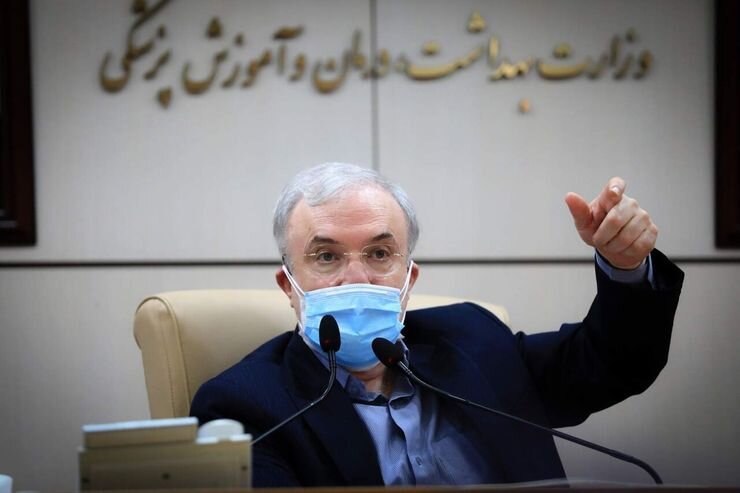Unilateral coercive measures may hamper global efforts to combat pandemic: Iran’s health minister

TEHRAN – Unilateral coercive measures may not only hamper effective interventions in combating the pandemic but in general terms, will hinder our global goals and regional commitment to achieve Universal Health Coverage, Health Minister Saeed Namaki said.
He made the remarks during the 67th Session of the WHO Regional Committee for the Eastern Mediterranean held virtually on October 12 – 15 hosted by Cairo, Egypt.
COVID Pandemic which strikes our Region very strongly had offered several lessons to be learned at national, regional, and global levels. Leadership, solidarity, “Whole of Government, Whole of Society approach”, community engagement, interpectoral collaborations, evidence-based interventions, and inter-country coordination are necessary instruments for COVID pandemic management, he stated.
In addition, we have to strengthen IT infrastructure to provide more reliable data, as well as Tele-medicine and Tele-education in the new era, he added.
Meanwhile, unilateral coercive measures may not only hamper effective interventions in combating the pandemic but in general, terms, will hinder our global goals and regional commitment to achieve Universal Health Coverage, he highlighted.
He went on to say that WHO has the central role in global coordination of activities to fight and manage the disease, therefore I would like to call upon all Member States and international organizations for strong support to WHO leadership.
Together we can overcome this pandemic and in this sustained fight, our brave and dedicated health professionals and community health workers have offered a critical role, he said.
He further invited the members for a minute of silence in recognition of all who lost their lives during this pandemic and in particular the deceased doctors and nurses who dedicated their lives to save others.
How sanctions affected Iran’s health sector
Although food and medicine were claimed to be exempted from the U.S. sanctions, financial and banking sanctions have limited the life-saving medicine trade which harshly targeted the patients suffering from rare diseases.
Moreover, fears of falling afoul of Washington have restricted exports to Iran.
Exemptions for humanitarian trade (such as food, medicine, and medical equipment) have not been effective in protecting Iranian patients from access to imported medicine, such as the bandages used for patients suffering Epidermolysis Bullosa (EB), a rare genetic disease that causes painful blistering of the skin.
With the return of sanctions, over a year (May 2018-May 2019), 15 patients covered by EB Health House lost their lives, including Ava, a two-year-old girl in Ahvaz city, who died of infection and lack of skincare.
Companies exclusively producing medicine for Mucopolysaccharidosis (MPS) patients, such as BioMarin Pharmaceutical Inc. of the U.S. and a South Korean company, have refused to export these drugs to Iran, threatening the lives of 335 patients in Iran.
So far, Swiss delivered 180,000 packages of medicine needed for cancer patients and transplant operations to Iran in February in an attempt to facilitate humanitarian trade following the implementation of the Swiss payment mechanism.
The government of the Republic of Korea also started close consultations with the United States and Iran in order to facilitate humanitarian trade with Iran with won-currency deposits made by the Central Bank of Iran (CBI) at banks in the ROK. As a result of such consultations, the ROK government resumed humanitarian trade with Iran on April 6, which was suspended after the U.S. tightened sanctions on the CBI in September 2019.
So, South Korea sent by air a shipment of medical supplies and medicine worth $500,000 needed for genetic diseases to Iran on May 29, which will mark the first case of shipment of goods for the recently resumed humanitarian trade and is expected to be followed by exports of medicine and medical equipment worth about 2 million U.S. dollars in June.
Building on the resumption of exports of humanitarian items, the ROK government will continue consultations with the U.S. and Iran on ways to broaden the scope of trade items to include not only medicine and medical equipment, which are currently the main trade items, but also foods and agricultural products, according to the Relief Web website.
FB/MG
Leave a Comment